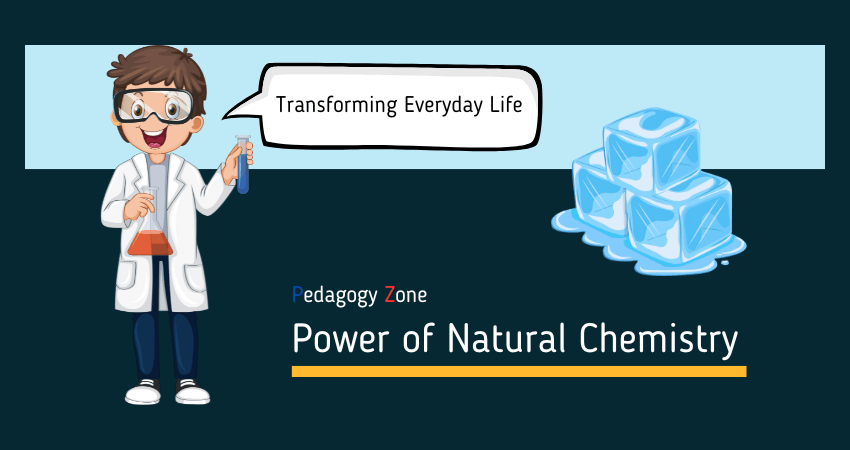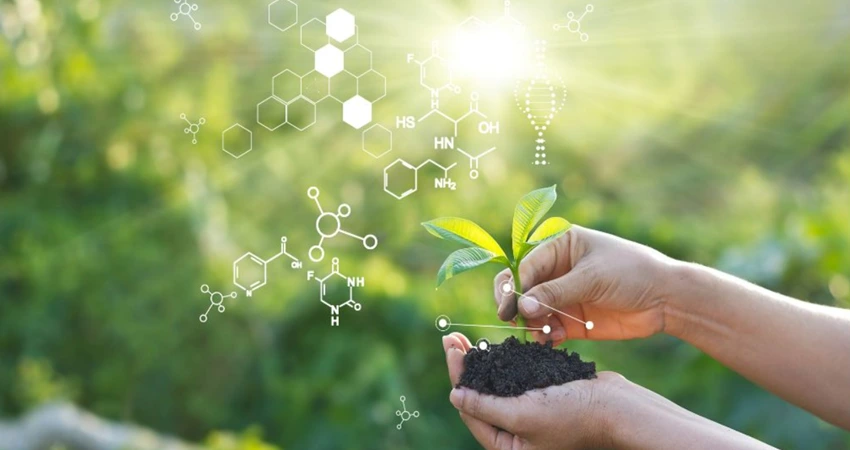[sc_fs_faq html=”true” headline=”h2″ img=”” question=”What is Natural Chemistry?” img_alt=”” css_class=””] Power of Natural chemistry refers to the study and use of chemical processes and substances that occur in nature. Unlike synthetic chemistry, which often involves man-made compounds, natural chemistry relies on the materials and reactions found in the natural world. This distinction is crucial, as natural chemistry is typically more aligned with the ecological balance, making it a cornerstone of sustainable practices. [/sc_fs_faq]

Natural chemistry’s influence on health is profound. Consider the ancient use of herbs and plants in medicine – this is natural chemistry at work. Today, the benefits of natural remedies are still recognized, with essential oils being a prime example. The chemistry behind essential oils involves the extraction of concentrated compounds from plants, which can have therapeutic effects, such as calming the mind or boosting immunity. Additionally, the role of natural chemistry extends to nutritional supplements, where naturally-derived vitamins and minerals are used to support health.
Natural Chemistry in Food
Our food system is another area where natural chemistry is crucial. Organic farming, for instance, depends on the natural chemistry of the soil and plants to produce food without synthetic chemicals. This practice not only yields healthier produce but also sustains the environment. The chemistry behind food preservation has also evolved, with a growing preference for natural methods like fermentation, which rely on natural chemical processes to extend the shelf life of foods. Moreover, the use of natural additives, such as citric acid or vinegar, in food processing is favored over synthetic counterparts for their safety and health benefits.
Skincare and Beauty Products
The beauty industry has seen a significant shift towards natural products, thanks to the power of natural chemistry. Natural ingredients, such as aloe vera, coconut oil, and shea butter, are prized for their skin-friendly properties. Understanding the chemistry of essential oils in beauty products reveals their multifunctional roles, from moisturizing the skin to acting as natural preservatives. By avoiding synthetic chemicals, which can cause irritation or long-term harm, natural beauty routines offer a safer and often more effective alternative.
Household Cleaning Products
Natural chemistry doesn’t stop at personal care—it extends to our homes as well. Natural cleaning agents, like vinegar, baking soda, and lemon juice, are staples in eco-friendly cleaning. These substances are effective due to their natural chemical properties, such as acidity in vinegar, which can cut through grease and disinfect surfaces. When compared to synthetic cleaners, natural alternatives are not only safer for our health but also less harmful to the environment. Plus, they’re often just as effective, if not more so, when used correctly. DIY natural cleaning solutions are becoming increasingly popular, as people seek to minimize their exposure to harsh chemicals.
Natural Chemistry in Agriculture
Agriculture is deeply rooted in natural chemistry. Sustainable agriculture practices harness the power of natural chemistry to promote healthy crop growth without relying on synthetic chemicals. Natural pesticides, for example, use plant-based substances to repel pests, while natural fertilizers, like compost, enrich the soil with essential nutrients. The impact of natural chemistry on soil health is profound, as it supports the biodiversity that is crucial for resilient agricultural systems.
Environmental Benefits of Natural Chemistry
One of the most compelling reasons to embrace natural chemistry is its potential to reduce pollution. Natural processes, such as the breakdown of organic matter, are less likely to produce harmful byproducts than synthetic processes. Natural chemistry also plays a role in renewable energy, such as the production of biofuels, which are derived from natural sources and are more environmentally friendly than fossil fuels. Additionally, natural chemistry can aid in waste management, as certain natural processes can help break down waste into harmless components, reducing the environmental impact.
Everyday Applications of Natural Chemistry
Natural chemistry is all around us, in everyday items that we might take for granted. For example, biodegradable products are made using natural chemistry, which ensures that they break down safely in the environment. Natural dyes, used in textiles, provide an eco-friendly alternative to synthetic dyes, which can be toxic. Even personal care products, like toothpaste or deodorant, often rely on natural chemistry to be both effective and safe for long-term use.
The Future of Natural Chemistry
Looking ahead, the field of natural chemistry is poised for exciting innovations. Researchers are continually exploring new ways to harness natural processes for everything from medicine to energy production. However, there are challenges, such as scaling up natural processes to meet global demand and ensuring that these methods remain cost-effective. Nonetheless, natural chemistry is likely to play a crucial role in sustainable development, offering solutions that are in harmony with the environment.
| Read More Topics |
| How to start a microschool? |
| Should i take AP bio or AP chemistry for BME |
| Desalination of brackish water |





